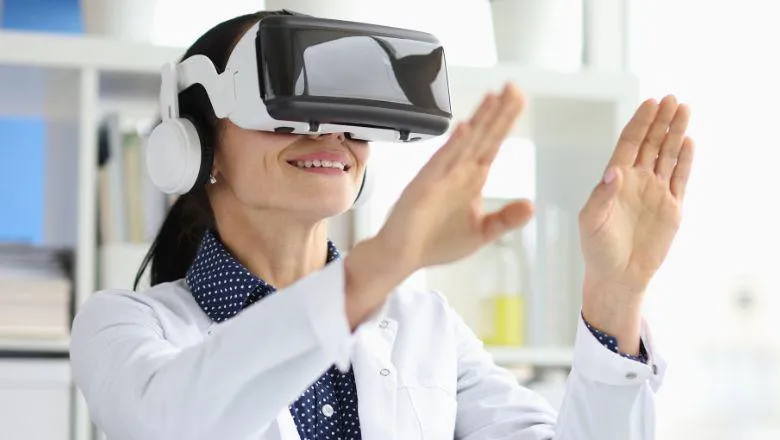Project tests the use and impact of virtual reality technology and artificial intelligence.

A study by the Florence Nightingale Faculty of Nursing, Midwifery & Palliative Care has explored the use of virtual reality (VR) technology with artificial intelligence (AI)-led scenarios in nursing education and its impact on student learning and skill development.
The project involved 11 pre-registration nursing students from two UK universities interacting with AI-driven virtual patients to carry out holistic assessments. It compared two different VR interaction methods: a menu-based system and voice-controlled AI technology.
In light of the COVID-19 pandemic and ongoing workforce challenges, there is a growing need for innovative and flexible approaches to nursing education. VR technology, enhanced by AI, offers a safe and immersive environment where students can develop critical skills, such as communication, decision-making, and patient assessment, without the risk associated with real-life clinical practice. This interactive educational approach aligns with problem-based learning approach and is becoming increasingly relevant in preparing students for the evolving digital healthcare industry, as nursing education evolves to meet complex healthcare demands.
By using AI-driven scenarios, nursing students feel better prepared for real-life clinical settings. This immersive learning helped to build their confidence, enhance their clinical reasoning, and improve their communication skills. This benefits nursing students, educational institutions, and ultimately, the patients they serve by fostering more capable and confident future nurses.
The project involved academics, students and a digital learning specialist who worked collaboratively together to design, implement, and evaluate the use of VR and AI-led scenarios for transformative simulation in nursing education.
The team now plan to expand the use of VR and AI-led patient simulations across a broader range of clinical skills and specialties, and undertake further studies on the impact of this approach on the professional development of healthcare students and practitioners. They are also exploring the integration of more advanced simulations into pre-registration, postgraduate and continuing education programmes.






